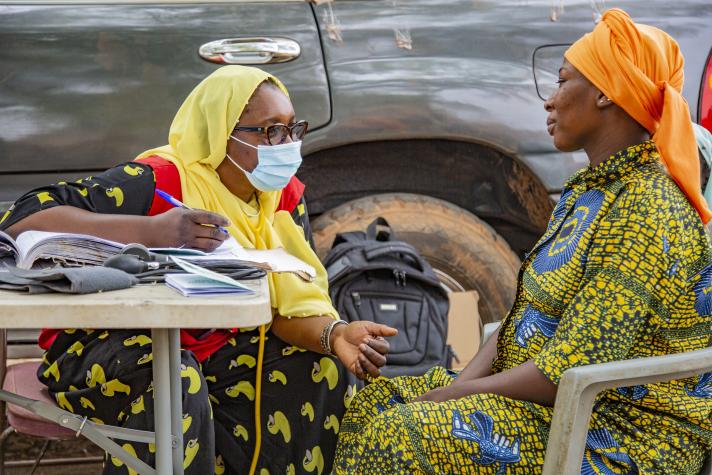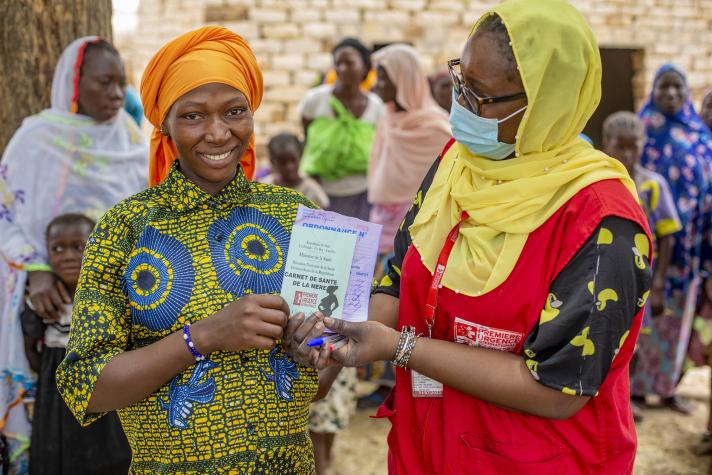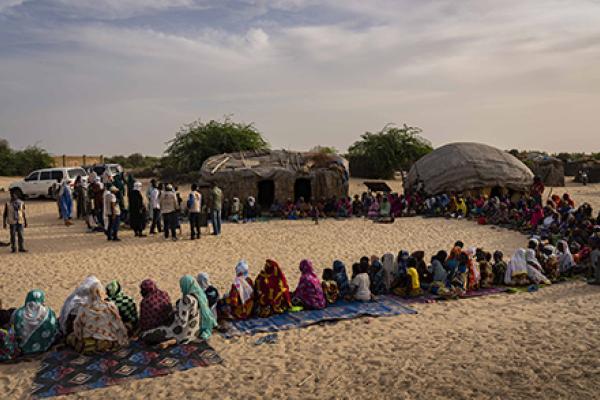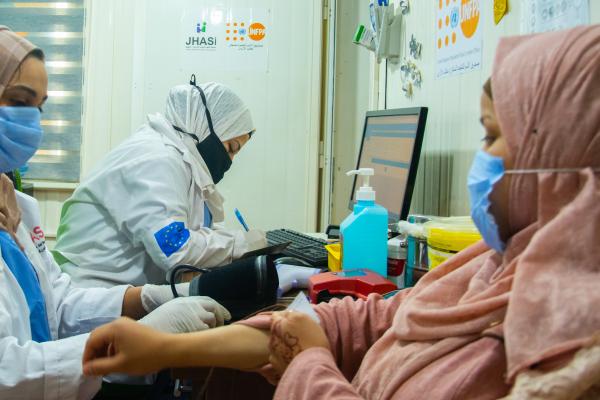The crisis that has been affecting Mali for more than a decade has undermined the country's healthcare system. Access to quality health services is increasingly difficult for the Malian population, particularly in the North and Centre of the country, which are directly affected by the growing insecurity.
In these regions, women and children face high health vulnerabilities, compounded by the lack of functional health infrastructure and skilled health personnel.
With 1 out of 4 health facilities in the North and Centre regions of Mali not functioning due to insecurity and lack of staff and supplies, an estimated 3.5 million people in the country need help to access health care.
The EU has allocated more than €34.7 million since the beginning of 2024 to help displaced and vulnerable populations in conflict-affected and fragile areas in Mali to access basic services, including €3.6 million specifically dedicated to healthcare.
Thanks to the EU funding, our partner Première Urgence Internationale is deploying 2 mobile clinics to meet the most urgent needs of populations far from health centres and internally displaced people in the San region. In these areas, where access remains a challenge, healthcare is mainly provided by community volunteers and humanitarian actors.
The mobile clinics are staffed by a community mobiliser, a doctor, a nurse, and a midwife.
Midwives play a key role in the delivery of basic maternal and neonatal health care, reaching populations that would otherwise have little access to these services. Their presence and expertise help improve women's sexual and reproductive health and reduce the risks associated with pregnancy and childbirth. They monitor women during pregnancy, throughout delivery, and follow up on their health and their newborns’ in the postpartum period.
Midwives also have an essential role in prevention and education. They educate women and families on the importance of reproductive health, hygiene, nutrition in disease prevention, including sexually transmitted infections. They also work to demystify certain traditional practices that could endanger the health of women and newborns. If a patient has complications that cannot be managed by the mobile clinic, midwives refer her to superior health facilities for specialised medical care.
Fatoumata Diawara, midwife in Mali for Première Urgence Internationale since April 2020, has always been attracted to health: “From a very young age, I wanted to do a job to help others.”
She is now part of the team of a mobile clinic that intervenes in the villages of the cercle of Tominian located more than 15 kilometres from the nearest health centre, as well as in sites hosting displaced people, who have fled their villages because of insecurity.
"I really love my job. In the villages where we work, people don't have a lot of means, or live too far from health centres. What makes me most happy is the recognition of the people we help. When I get out of the vehicle, everyone shouts "Fatoumata is here!" It's a great joy for me!”
The conditions which the mobile clinic teams work in are nevertheless difficult, as Fatoumata recounts: "We often drive a long way to get to the villages, and sometimes encounter problems on the road because of the insecurity in the region. Some days, after working during the day in the field with the mobile clinic, the obstetrician nurses or matrons in the villages where we sleep call us to assist with deliveries at night, in the community health centres that do not have qualified staff.”
Despite the difficulties, Fatoumata remains a passionate midwife. "2 patients I helped deliver called their daughters Fatoumata. It made me very happy, and it's what motivates me to keep working to help give life!”.






